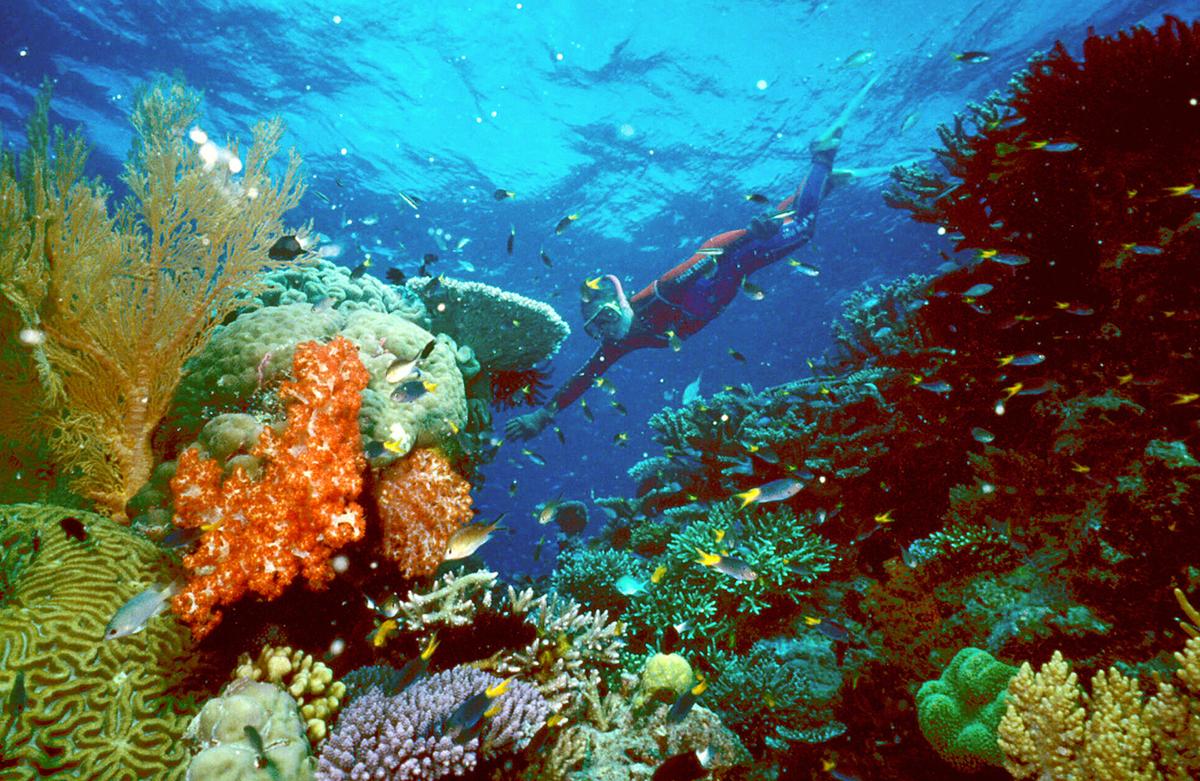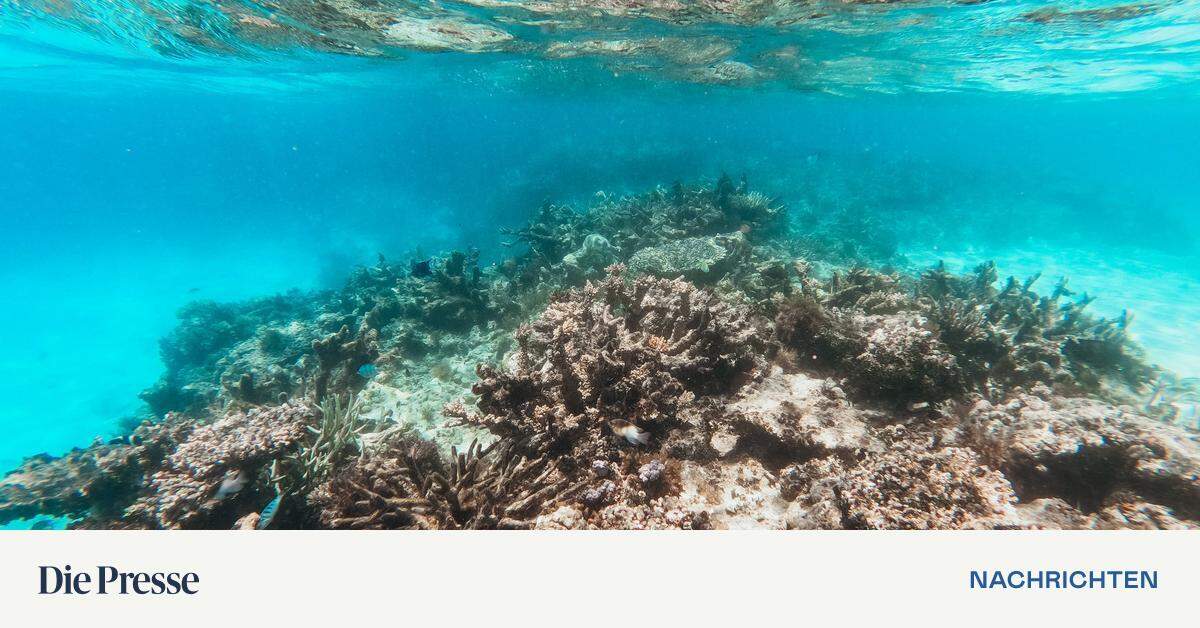Water temperatures around Australia's natural wonder of the Great Barrier Reef have reached a new high.
The Great Barrier Reef has never been as warm as it is this year in the past 400 years, according to an Australian research team. The team wrote in the journal Nature that the warming could be attributed to human influences. The researchers, led by Benjamin Henley of the University of Melbourne in Australia, reconstructed sea surface temperatures from 1618 to 1995 using coral skeletons from the reef and compared them to sea surface temperature data recorded from 1900 to 2024.

Great Barrier Reef 2003 Reuters
The risk of complete bleaching increases.
Before 1900, water temperatures were relatively stable. The study shows a steady increase from 1960 to 2024: an average temperature increase of 0.12 degrees per decade between January and March was measured. However, as the authors note, there are also uncertainties in the temperature data reconstructed before 1900. Some of the chemical content of the corals used to model temperatures may have been affected by other variables, such as salinity. However, with additional coral core samples from the region, these uncertainties could be reduced.
As water temperatures rise due to global warming, the risk of mass bleaching and coral die-offs in Australia’s natural wonders is also increasing. Mass coral bleaching was first observed in 1980; in recent years, it has become more frequent.
No chance for coral reefs
In March this year, the fifth mass bleaching event in eight years was confirmed on the Great Barrier Reef, home to a diverse ecosystem. Researchers show that in the years with the most recent mass bleaching events (2016, 2017, 2020, 2022 and 2024), the average January to March months were significantly warmer than in any pre-1900 reconstruction.
“Without rapid, coordinated and ambitious global action to combat climate change, we are likely to witness the demise of one of the world’s great natural wonders,” the team wrote. The scientists estimate that 70 to 90 percent of coral reefs worldwide could be lost — even if global warming remains below the Paris Agreement’s 1.5°C target. In addition, future coral reefs are likely to have a different community structure with less coral species diversity. (APA/DPA)

“Total coffee aficionado. Travel buff. Music ninja. Bacon nerd. Beeraholic.”








More Stories
Coral Seeding: Artificial Insemination Makes Coral More Heat Tolerant
Fear, Anger, and Denial: How People Respond to Climate Change – Research
LKH Graz: Using radiation to combat heart arrhythmias